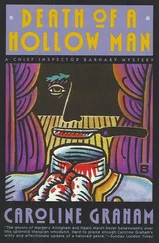Karen’s headaches had not gone away. Gently talking around the idea of a visit to the doctor had not worked. After the terrible threat the child’s mother had made in this direction Doris was not surprised. She then tried bribery, which had always done the trick with her nephews and nieces, but that didn’t work either.
Not that Karen ever admitted to feeling bad. The fear equals doctor equation was too firmly established. But Doris noticed her screwing up her eyes sometimes and only last week she had her hands clamped over her ears and was trying not to cry. Overcome with worry, Doris had talked to her sister, who was convinced it was a brain tumour and that every minute counted.
Doris became desperate. She could not bear to put at risk the new and extremely precious relationship between herself and Karen. Imagine the damage, the breaking of all trust, if she attempted to trick the little girl into a surgery. And what if it was then decided that she needed an X-ray? Doris pictured the child somehow being forced “for her own good” to go through this distressing experience, surrounded by strange machinery and getting more and more panic-stricken.
Then, just a few days ago, Karen caught a cold. A late summer wheezing cough and cold. Something had to be done. Doris booked herself an appointment with Dr. Dickenson, now in his last couple of weeks with the practice. She said it was an emergency and was fitted in at the end of morning surgery. She told him everything from the very beginning, struggling to remain calm, not always succeeding.
The doctor said there were almost as many reasons for persistent headaches as there were headaches. He said that brain tumours were extremely rare in adults and even more so in children but that, of course, Karen must be seen by someone. He suggested Doris registered her with the practice as soon as possible and that he would call at Dunroamin’ on his rounds that afternoon. He had an idea, which Doris would perhaps consider, on how the visit might be handled.
So around four o’clock Dr. Dickenson arrived, leaving his bag in the hall. Ernest, primed, made some tea, took the tray in, with instructions to Karen to pour, then made himself scarce. As Karen gave the pot a stir, wondering if it was strong enough Doris rolled up her sleeve and had her wrist gently palpated.
“Why is he squeezing your arm, Aunty Doris?” asked Karen.
“Don’t say ‘he,’ Karen. It’s rude.”
“I’m your aunt’s doctor,” said Dr. Dickenson. “I’m afraid she’s got a bit of a sprain.”
“Oh! Does it hurt?”
“Could be worse,” said Doris, truthfully. Then, getting carried away. “Shall I have to wear a bandage?”
“Rest is the thing, Mrs. Crudge. And I can see you won’t be short of a helping hand.”
“She’s a good girl.” Doris smiled as Karen poured milk into rosebud-patterned cups. “I don’t know what I’d do without her.”
Passing a plate of ginger parkin round, Karen started to cough, covering her mouth with her hand as Doris had shown her.
“You want some Buttercup Syrup for that,” said Dr. Dickenson.
“There’s no such thing.” Karen was uncertain, not sure if she was being teased. Whether it was all right to laugh. “Is there?”
“Get it at the Co-op.”
“Made from buttercups?”
“I had that years ago,” said Doris. “My mum used to swear by it.”
They ate and drank comfortably for a little while, Dr. Dickenson sitting back, smiling and munching, as if he had all the time in the world. Doris watching Karen without watching. Suddenly Karen sprang up.
“Uncle Ernest hasn’t had any tea.”
“I’ll get it.” Doris heaved herself out of the armchair. “Do me good to move about.”
“What about your arm?”
“I can manage a tray.” Doris brought a mug in from the kitchen, filled it then cut a large square of cake. “You look after Dr. Dickenson, Karen.”
“Actually, I have to be going in a minute.” But he didn’t get up. Instead he asked Karen if she watched a lot of television. Then, when she said, “No,” asked if she wore glasses and when she asked, “Why?” said she seemed to be screwing up her eyes a lot and he wondered if it could be eye strain.
“Um…I get headaches sometimes,” said Karen. Then, quickly: “That is, I used to.”
“My grandson – he’s about your age – gets terrible headaches.”
“Can’t you make him better?”
“I did, actually. Took some time – he had to have all sorts of tests.”
“Did they hurt?”
“Heavens, no. But it was bad news.”
Karen gaped and her eyes grew round.
“Turns out he’s allergic to chocolate.”
Doris, moving about in the kitchen, doing nothing special, listened to the low voices. Once Karen laughed and Doris sighed with relief. Surely that meant it was going to be all right? They talked for quite a bit longer, then she heard Dr. Dickenson heaving and puffing his way out of the sofa and went back into the lounge.
“Karen’s going to come and see me about her cough.”
“That’s a good idea,” said Doris.
“Can I have some more parkin?” asked Karen.
“You’ll eat me out of house and home.” Doris showed the doctor into the hall and opened the front door. “Not that she can’t do with putting a bit of weight on.”
On the step he turned towards her and Doris saw his face clearly in the harsh sunlight. It was grave and sad. Her hand flew to her heart. Gasping, she cried out.
“What is it? Tell me.”
“I don’t know—”
“ Tell me. ”
“Please. She’ll hear you.” He backed away into the front garden. Doris stumbled after and, when they reached the gate, stood against it blocking the way.
“I’m her mother. I have a right to know.”
“I’d like someone else to see her. A specialist.”
“Is it a brain tumour?” Doris seized his jacket, her eyes dark with fear. “Will she have to have an operation?”
“No. I’m pretty sure it’s nothing…” He hesitated. “Nothing like that.”
What could he say? He was not capable of accurately diagnosing mental illness, though, God knew, he had seen enough seriously disturbed children in his time. He knew it could be linked to poverty, abuse or inadequate parenting. That last could certainly be a factor in this case. It could be genetic. It could spring up with devastating and frightful results in a formerly sunny-tempered child with a loving home. There was no accounting for terrible things.
“So – what sort of specialist?” Doris was saying.
“There’s someone at Princes Risborough. A woman doctor, specialising in child care. She’s young, very sympathetic and I’m sure Karen will ‘open up’ to her, as they say.”
“Open up?”
“Talk to her.”
“What about?”
It was a perfectly reasonable question that Dr. Dickenson found extremely difficult to answer. What he would have liked to do was reply, “Her headaches,” and walk away. Plainly that wasn’t on. Yet if he was honest as to the true nature of Karen’s anxiety he would be laying a heavy burden on this poor woman. He paused, thinking around and about the matter. Seeking perhaps an alternative. Wondering if he had perhaps been too hasty in his conclusions. Wishing and hoping that might be true. Noticing how much worse bad things seemed when you put a name to them.
He began to backtrack, telling himself he had been too hasty; attempted to look at what he had been told from a different point of view. A layperson’s, for example. Unburdened by any medical knowledge, what would they think of Karen’s strange ramblings? The answer came quickly enough. They would think she was making it up. What an imagination, they would say. And if it all went a stage further? Would they see this as genuine derangement, as he had done? Probably not. They would say she’d been watching too much telly. Or eating cheese before bedtime.
Читать дальше










